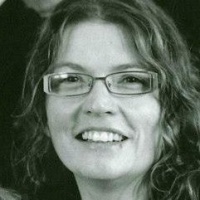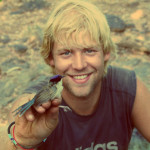‘I was welcomed with roses and a meal’
What was the first thing you did when you received the grant?
‘I called my husband to let him know the good news. The next evening when I arrived home from work, I was welcomed with roses and a home-cooked meal. We celebrated the grant together with our daughter.’
 What is your research about?
What is your research about?
‘My research is about studying the mechanisms with which bacteria coexist in our intestine as part of our microbiome. There are over 1,000 species of microbes in our gut and they outnumber our own cells by 10:1. They are able to live in our gut without being recognized by our immune system and to digest some of the foods we are unable to digest, such as complex carbohydrates found in plant material.
I study how microbes digest complex carbohydrates produced by other microbes as a way of defending themselves against their ‘invading neighbours’. The intestine is a crowded space and bacteria must compete to establish their niche environment. By understanding the ‘warfare’ strategy of bacteria, we may be able to develop therapeutic strategies to treat human microbiome-associated diseases, such as diabetes, obesity and colitis.’
Why is it so interesting?
‘It is truly amazing how bacteria shape the way we live. Without them residing in our bodies, we wouldn’t be able to function as a whole entity. Right from birth bacteria shape how we develop, starting first with helping our immune systems and helping us digest our mother’s milk. The bacteria we gain in childhood stay with us for the rest of our lives. Not all bacteria are harmful, so we shouldn’t be afraid of them.’
In bout three years ago I will have discovered…
‘A mechanism of microbe-microbe interactions in the intestine and that this same strategy might also apply to how healthy bacteria help fight off the pathogenic bacteria that enter our intestine, such as salmonella.’
Why are you a scientist and not, for example, an entrepreneur?
‘I love being an academic research scientist and I love the freedom and flexibility you have to pursue the research that interests you. I also love the contribution I can make to teaching future scientists and that you are making a contribution to society behind the scenes by expanding our understanding of how nature works.’





